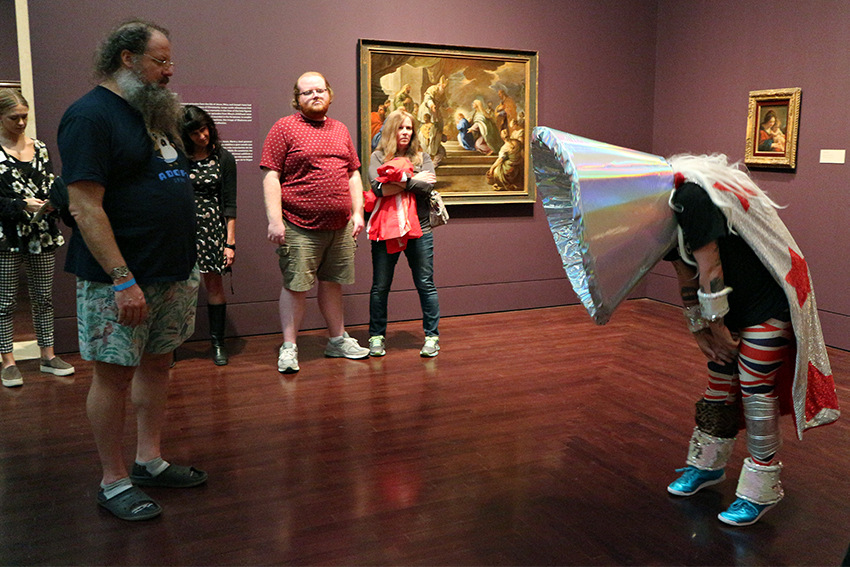Music meets human anatomy in SoundSpace’s latest show, Biosounds. This event, which was held at the Blanton Museum on Sunday, Nov. 4, featured a variety of performances from bands and interpretive dancers alike to showcase the music hidden inside all of us. Every performance incorporated sounds involving the human body, such as heartbeats or brain scans interpreted as sound.
SoundSpace is a concert series bridging together creators of all disciplines to connect visual and sound art. Members of this concert teamed up with Dell Medical Center to bring together processes of the human body and medical procedures to create music, director of SoundSpace Steve Parker said.
“Today’s program explores the connection between sound, music, medicine and body,” Barker said. “There are a ton of great artists in and outside of town doing great work at the convergence of these fields.”
Graham Reynolds is an Austin-based composer that creates, performs and records music for a variety of purposes, including filmdance, rock clubs and concert halls. He produced a piece named, “The Brain,” in collaboration with UT-Austin neuroscience professor Kristen Harris.
“What I try to do, if I’m interested in something that’s not music, is I try to turn it into work,” Reynolds said. “That way I have an excuse to spend time reading about science or making cocktails and calling it work. I read about Kristen Harris, and she was mapping the brain, and I said ‘I want to hang out with that person.’”
Reynolds said he was in Mexico City when he had the idea for a piece involving collaboration between composers and scientists. Harris had just received a $9 million grant to map the brain and study learning and memory processes, Reynolds said, so he set up a meeting with her.
“One of the first things I saw on Kristen’s website was these pictures of the brain they had taken and animated,” Reynolds said. “So I would put up these photos on the piano or keyboard, and make a piece of music reflecting on or in response to these images.”
The piece played at SoundSpace’s concert was an excerpt of a Sound of Science project Reynolds has been working on, he said. The work is in three pieces, the first of which will play in New York City, the second in Mexico City and the third in the spring with all of the composers and pieces.
Among the other artists present was Thomas Echol with a piece incorporating muscle tension and heart rate, Heloise Gold with an interactive meditation session and the Invoke quartet, which led an interactive game of Operation with the audience.
“I thought it was really cool,” said Cassidy George, a student from California visiting Austin. “I didn’t know this was happening today, and it was a really nice surprise. The different bands playing and the group playing Operation was really fun.”















